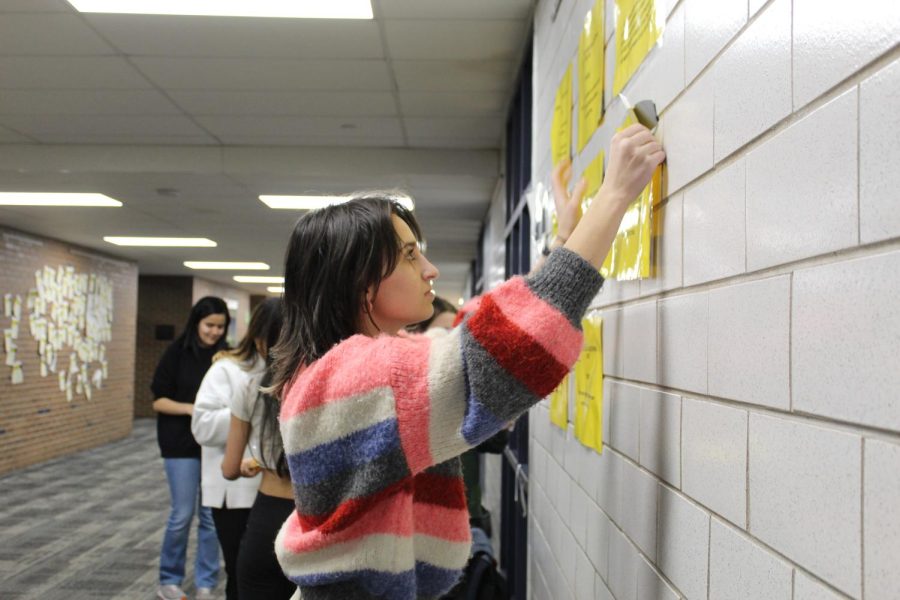Taking a stand for human rights
Progressive Posters: Senior Mia Burshteyn, STAND for Peace member, helps hang Universal Declaration of Human Rights posters.
December 16, 2022
When a genocide broke out in Darfur, Sudan, in 2004, South students gathered to discuss and better understand the alarming news, thus forming Students Taking Action Now for Darfur (STAND) for Peace, Matt Whipple, STAND for Peace Sponsor and Social Studies Teacher, explained.
The Darfur genocide crisis motivated students to learn more about human rights struggles around the world, and the club continued, Whipple said. Today, the club organizes fundraisers and discussions about important current events, such as the annual student-led event known as Jamnesty, which raises between $1,000 to $2,000 a year.
“[At] last spring’s Jamnesty, we sent [the money raised] to Ukraine,” Whipple said. “The year before, we sent it to a group that supported the Uyghurs, who were facing oppression by the Chinese government in western China.”
One of STAND for Peace’s goals is promoting awareness for global matters, senior Mikaela Streicher, STAND for Peace representative, said. Streicher elaborated that although taking direct action is difficult, learning and discussing are just as meaningful.
“Spreading [knowledge] is important because people will get an idea [of] what’s occurring around the world and won’t just be in their bubble,” Streicher said.
Compared to general fundraising clubs, STAND for Peace is specific in its goals, senior Mia Burshteyn, STAND for Peace member, explained.
“STAND for Peace is more personal,” Burshteyn said. “A lot of the things that we’ve done help individuals more than donating to a large organization.”
STAND for Peace focuses on improving human rights at South as well as in areas around the world, Whipple explained. He believes there are ways anyone can contribute in their everyday lives.
“Treat [peers] with respect and integrity, honor them as individuals, and allow them to have a safe space to [be] who they are,” Whipple said. “Choose not to label, stereotype, [or] discriminate in any way.”
STAND for Peace believes human rights exclude no one; they are rights students should have inside and outside of school, Whipple explained.
“Human rights start here, and you continue to carry that [notion] outside of the school,” Whipple said.



